Samsung Droid Charge Review - Droid Goes LTE
by Brian Klug on June 22, 2011 7:47 AM EST- Posted in
- Smartphones
- Samsung
- LTE
- 4G
- Droid Charge
- Mobile
WiFi, Hotspot, Audio Quality, Speakerphone, GPS
The Charge is yet another smartphone to use Broadcom’s BCM4329 for Bluetooth 3.0 + EDR and 802.11b/g/n WiFi. Thus, it connects at 72 Mbps using one spatial stream on 2.4 GHz WiFi. Range is just what I’m used to seeing with the Charge, there’s nothing to report here that’s out of the ordinary, as the Charge hands on and off of WiFi predictably well just like every other BCM4329 based device.
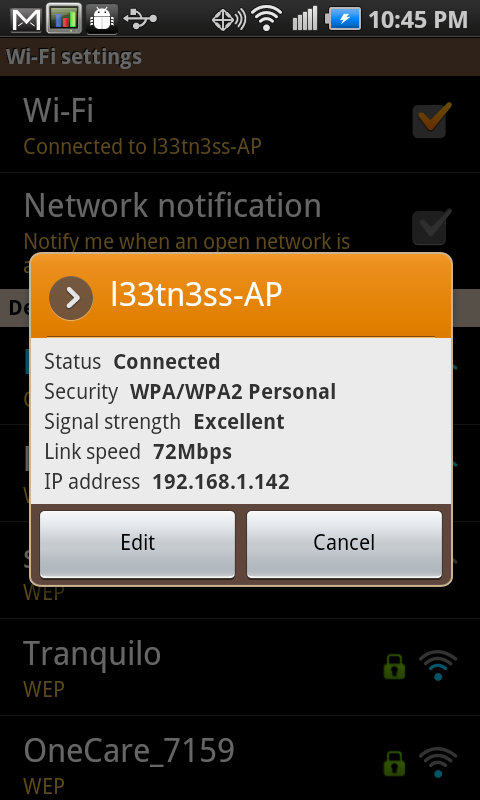
Likewise the Charge supports WiFi hotspot creation, though Samsung rolled its own software for the Charge and doesn’t use the native Android hotspot utility.
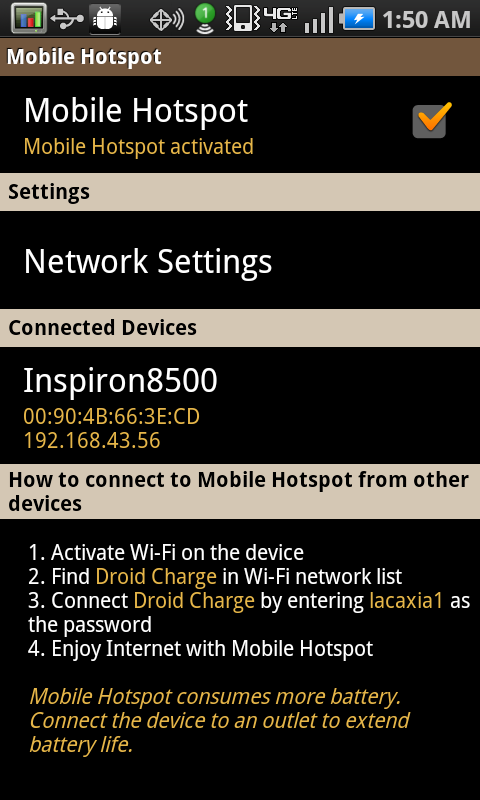
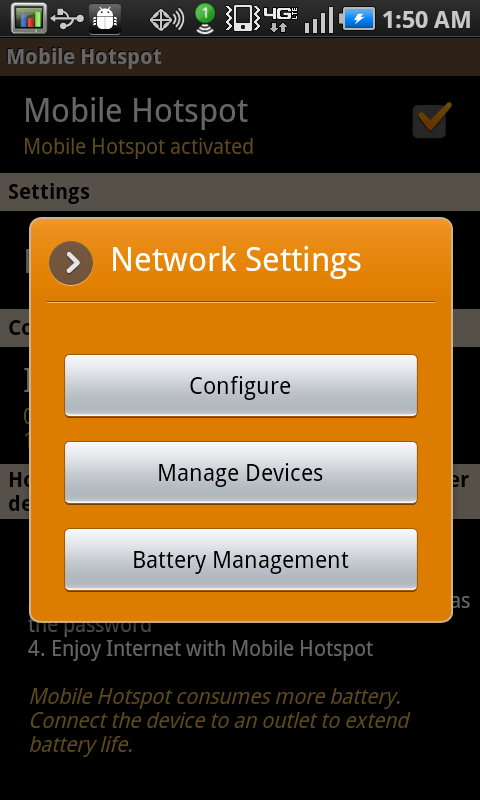
The Charge originally received a lot of press for being able to support 10 WiFi clients on 4G LTE and 5 on 3G EVDO, which has been free thus far. Hotspot functionality worked fine through the end of May, at which point it stopped working unless you manually set your date back inside May. After the EE4 update, functionality was restored, but I’ve encountered some problems of my own despite the free LTE hotspot creation period being extended.
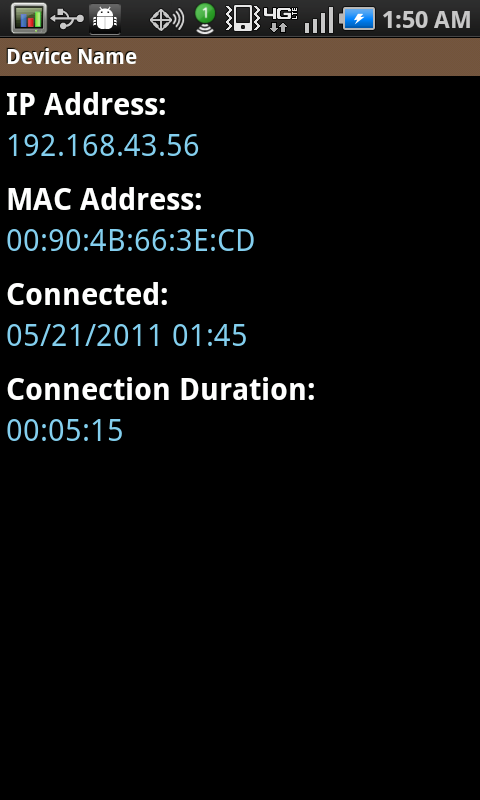
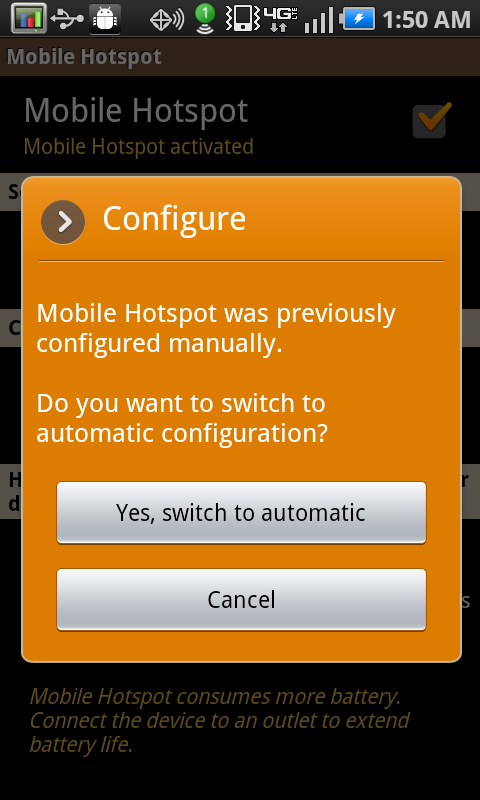
Though it’s a bit wonky, the Charge hotspot software is relatively standard fare and lets you do the usual things like set an SSID, WPA/WPA2 pre-shared key, timeout, and view details on individual connected clients. I didn’t get around to trying to have 10 devices connect, but I’m sure it would have worked. As an aside, it seems odd that Verizon’s 4G LTE handsets support more attached users than their dedicated portable hotspot products, and the latter come with tiered data. Something is very wrong with that picture.
I know that audio performance is another huge concern for many smartphone shoppers, and I’ve heard more than one request for some analysis going forward. We’re absolutely going to start doing so, for now however I can say that the Charge has the same Wolfson Microelectronics WM8994 multi-channel codec as Galaxy S. I listened to lots of Google Music tracks on the Charge using some Shure SE535s and the whole thing sounded great to me.
Samsung Droid Charge - 1x Voice by AnandTech
The other important voice quality metric is how actual calls sound. The Charge of course has a unique baseband, and thus I was initially curious to see how calls were going to turn out. I don’t remember ever thinking calls were bad sounding before the update, but after the update things sound excellent. I took a recording using the same method we used in the Thunderbolt to illustrate how good the Charge sounds - there’s no squealing or random drop-outs. I’m actually very impressed.
Next up is speakerphone volume which is another important metric. We measure using a digital Extech sound-level meter while calling that same number on speakerphone at maximum volume. The Charge is nice and loud here, and that extra loudness is especially useful for more than calls – it’s also nice to have when using Google Navigation.
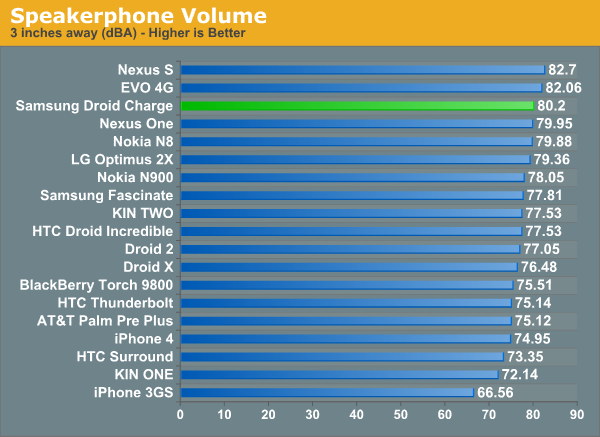
I guess that brings me to GPS performance. The original Galaxy S series had some big headline-grabbing GPS problems, and the Verizon variant seemed to never quite shake them either.
I tested anywhere between 4-10 seconds from complete reboot to a good GPS fix on the Charge’s GPS with WiFi turned off. This is a far cry from how broken GPS used to be with every other device. I used the Charge for Google Navigation and drove just north of 800 miles without GPS ever flaking out - trust me, this GPS is tested and passes. That said, that time to fix could still be a bit faster, and you do need a large swath of unobstructed sky for things to work nicely, but it isn’t anywhere near the flustercuck that was Galaxy S GPS.


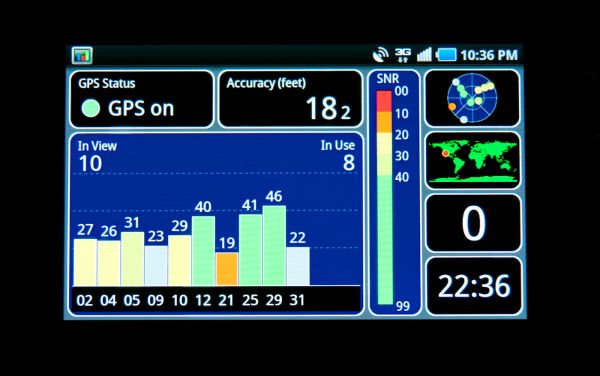








61 Comments
View All Comments
whome.doyou - Thursday, September 29, 2011 - link
So can we now make calls and browse at the same time with this 4G phone on the Verizon network?